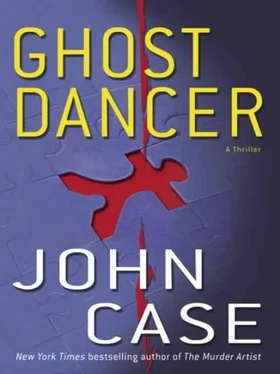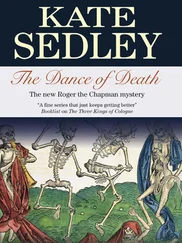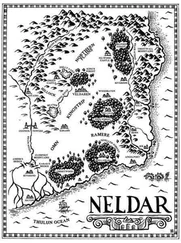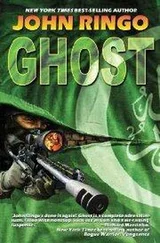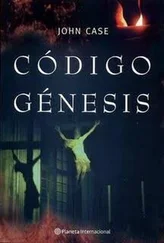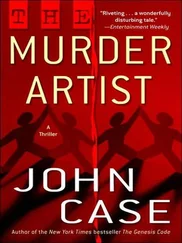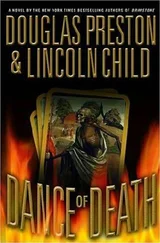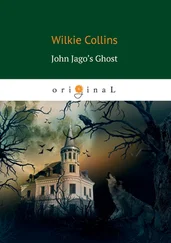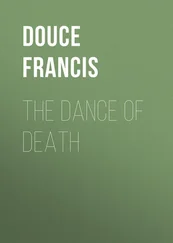Kovalenko would appeal to MI-5 as soon as he got back to London. But he probably wouldn’t get anywhere. Asking a Jersey bank for an account holder’s name, Kovalenko realized, was like asking a priest for a transcript of someone’s confession.
“I’m sorry,” Warren said, breaking eye contact. “I’m afraid it’s just not on. Our laws-”
“Your laws protect criminals and terrorists,” Kovalenko hissed. He could feel his face reddening, his blood pressure climbing. He tried to calm down, to “center” himself, but it wasn’t working. It occurred to him that this was just the kind of thing that triggered heart attacks.
The helicopter lifted off the pad, and swung away from the ground. Kovalenko watched the island dwindle beneath him. These offshore banks, he thought, are criminal enterprises. If he had his way, every corporation on earth, and especially the banks, would be “transparent.” That would put a stop to a lot of crime, including terrorism. Just that one step. The only reason for bank secrecy was to wash money, hide money, or steal money. Put an end to funny money and you’d go a long ways toward putting an end to funny business.
He forced himself to relax. Belly breathing, long on the exhale. At least he had the account number and, even more important, the name of the registered agent. That agent would have received any and all of the correspondence relating to the account, including transaction records. Either the agent forwarded the information to his client, or he held it for him.
Kovalenko hoped it was the latter. But whatever the agent had, Kovalenko would get. Because, in Ireland, they knew a thing or two about terrorism.
DUBLIN | MARCH 31, 2005
It was all about which way you turned when you got on the plane. If you went left, you were on some kind of fast track, and if you went right, you were probably paying your own way.
Mike Burke had turned right, and now he was riding in steerage. Row 38, Seat A, ten rows up from the lavatories, but next to the window. Bound for Dublin.
He was returning from his sister Megan’s wedding, which had taken place in a picture-postcard, country church in Nellysford, Virginia – Burke’s hometown.
It was the first time he’d been back to the States since Kate died, and he’d done his best to be cheerful and agreeable. He’d assuaged the worries of his parents, and turned aside their questions. He was doing well, he was fine, the worst was over, it was behind him now…
Or so he said. In reality, he didn’t fool anybody. To be around Megan and Nate, and give no hint of the way he felt, was… well, impossible. They were luminous with happiness, and he was… what? A walking reminder that “things fall apart; the center cannot hold.”
Maybe it’s time to move on, Burke thought. With the old man back on his feet, and business beginning to pick up, maybe it was time for Burke himself to get on with his life. If not right away, then soon.
After all the years he’d spent, going round and round like a ball bearing on a roulette wheel, he’d come to rest in Dublin with Kate. And it wasn’t so long ago that he’d imagined spending the rest of his life there. But with Kate gone, Ireland no longer felt like home, much less like “the future.”
Yet he was still in the same flat, her flat, with the eclectic furniture and the big sleigh bed they’d picked out together. Her clothes still hung in the closets. Her books stood in the bookcases. Her pots and pans dangled from a pegboard in the kitchen.
And then there was the old man, who never stopped talking about her.
It wasn’t that Burke missed America, but somewhere in the back of his mind he’d begun to think of his trip to the States as a trial return. Maybe on his native soil, absent the daily reminders of Kate, he could imagine a fresh start.
But the experiment was over. He’d been in the States only a couple of hours when he realized there was nothing for him there. He was thirty years old, and he might as well have been the Flying Dutchman. The soft mountains of the Blue Ridge, black against the evening sky, meant nothing to him.
People kept telling him that it would get better, that his grief would ease. But that was just another way of saying that Kate herself would begin to disappear. They might be right, but it wasn’t what he wanted, not at all. In some ways, his grief was all that was left of her.
Washington wasn’t any better. He’d arranged to see a few of the people he knew but, once again, they hadn’t known Kate. And so they seemed like strangers. For Burke, everything went through Kate, or it didn’t go at all.
He couldn’t get over thinking about the way they’d found each other. He’d actually fallen out of the sky – crashed and burned and damn near died, only to be delivered to her doorstep by a man who called himself Colonel Homicide. If that wasn’t fate, what was it?
He shifted within the cramped architecture of his seat, his eyes on the video monitor overhead, displaying a cartoon Airbus inching its way across the Atlantic toward a map of Europe. He was exhausted by the efforts of the past few days, the strain of pretending he was fine.
Even so, he took some joy from Tommy’s rebound. He’d had a part in that, a part in keeping the old man from dying of a broken heart. It was good to see him now, going out to the pub with his pals. They were busy again at the office, so much so that they’d hired a new secretary. These were boom times for Ireland, and now that Tommy was back, the firm would prosper once again.
Burke had kept the business afloat until the old man was on his feet again. But what really turned the corner for Tommy was a visit from Kate herself.
“She came to me,” he said, “in the night. Stood at the foot of my bed – Katie herself, mind you. ‘Da,’ she says to me, ‘I canna stand the sadness! Do you understand me? Between you and Michael, I have no peace. You’ve got to stop.’ And then she kissed me on the forehead and made me promise I’d be brave enough to get on with things. She promised that she would always be there, even if she was gone. Isn’t that just like her?” Tommy asked. “Still looking after us?”
Burke would have given anything for a glimpse of Kate. Even if it was an illusion, a hallucination or a dream, it would have sent a rainbow straight through his heart. After the vision, the old man looked so relieved, so suddenly at peace with himself and the world, that Burke felt a surge of envy. “She hasn’t come to me,” he said, as if Kate’s ghost had betrayed him.
The old man gave him a warm smile, and touched his arm. “Perhaps in time, Michael…”
As the aircraft began its descent, Burke awakened from his reverie to a sense of disappointment. It was one of those brilliant mornings that happen too rarely in Ireland, the bright green fields sweeping toward the Irish Sea, the sea alive with whitecaps under a Windex sky.
He would have preferred gloom. Darkness and rain. Instead, he found himself descending into a Hallmark card. As the plane banked into its final approach, he saw the flash of a dozen sails beneath the wing, and the long, furling wake of a fishing boat. It did not lift his spirits.
It was barely nine a.m. when he cleared Immigration, so he collected his car and headed for the M1 that would take him into the heart of the city. To his surprise, he caught himself smiling. There was something about Ireland. Maybe it was the scale of the place, the lilting voices in the terminal, the mischief in the brogue.
Without realizing it, he was beginning to feel at home in the maze of streets and parks that were Dublin. He’d missed the old man, and the routine of work, the rose-brick building on Cope Street and jogging along the quays beside the Liffey. It was, he grudgingly admitted, good to be back.
Читать дальше
